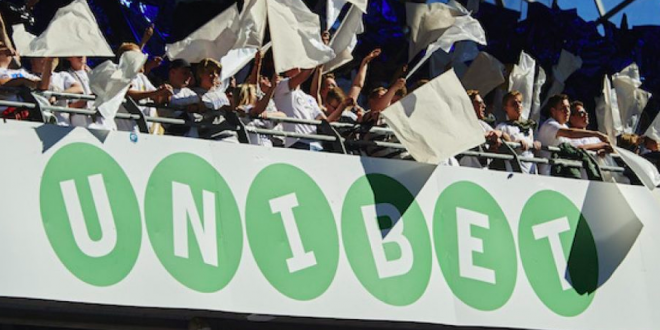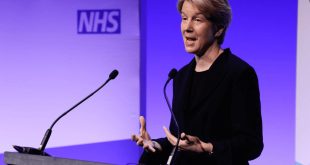Finance risk checks dominated conversations during Gambling Act review consultations, and with good reason, Tom Banks observed, but Kindred’s Head of Corporate Affairs UK/Global noted marketing as an area that should not be ignored.
With their plans for marketing regulation, the DCMS and UK Gambling Commission (UKGC) might be overstepping the scope of the Gambling Act review itself, in Banks’ view, which could have consequences for both challenger brands such as Kindred but also the wider industry.
Questions remain
“What we felt the Commission did in their consultation was perhaps slightly different to what the government originally looked for in the White Paper,” Banks summarised the company’s perspective following marketing and communications consultations.

Source: Kindred
From the group’s initial understanding of the government’s objectives of the review when it comes to communications related to customer registration, i.e. ensuring that when a customer sets up an operator account, they can immediately choose their preferences to what marketing messages – if any – they receive.
However, under the Commission’s latest proposals, operators will have to seek ‘re-approval’ from existing customers for their marketing. For Kindred this is a step too far, essentially amounting to re-requesting consent when this has already been obtained.
In a market as packed with licence holders as the UK, as well as one home to high-profile, big-budget firms such as Flutter, Entain, bet365 and 888, putting further restrictions on operator marketing and comms may not be the best move for a level playing field.
Banks explained: “The opt-in changes are a potential risk, particularly for us as a challenger brand. We aren’t the biggest brand in the UK and we require being able to be nimble with our marketing.
“We want to make sure customers get the right stuff, but what was included was that all current customers – even though lots have them have already opted into or out of various things – would have to re-subscribe.
“Overnight, at the flick of a switch under the current proposals, we could lose the ability to communicate with customers who have already given approval to receive stuff, and so that was one of our major concerns that as a smaller brand that doesn’t have the same TV advertising and online advertising budget some of the larger operators have.”
As with other White Paper consultations, it seems stakeholders feel more clarity is needed on marketing checks – this certainly seems to be the case with Kindred, which has highlighted a few different areas.
For example, when the requirements come in, will operators no longer be able to contact their existing customers? Would they just have to reseek approval when a customer re-logs into their account?
Above and beyond
Whilst the UKGC may be going a step further than the scope of the White Paper, operators have been striving to take a step further in terms of responsibility in marketing – a topic Banks recently discussed at the SBC Player Protection Day.
Breaking down Kindred’s efforts in this space further, Banks explained that the firm has gone beyond the UK standard that 20% of marketing should focus on safer gambling.
This includes traditional methods, such as LED advertising at football grounds – showcased via Unibet‘s partnership with Scotland’s Rangers FC – but also through direct customer communication.
“We’ve gone above and beyond on the indirect side as well as the direct side,” Banks continued. “We’re constantly making sure our customers are aware of our tools and we’ve actually seen a massive benefit.
“We’ve been talking to customers for example for a few years now indirectly through our sponsorship and marketing but then directly in marketing around setting limits, using some of our tools and we know that that’s having a huge benefit.”
Citing statistics, Banks outlined that Kindred’s efforts in this regard have seen the number of customers utilising a voluntary deposit limit skyrocket from 16% to 58% in two years – corresponding to the duration of the Gambling Act review
This serves another purpose for the company, that being its net zero goal, whereby it aims to eventually generate 0% of group-wide revenue from harmful gambling. The quarterly updates it has published on this demonstrate the benefits of going ‘above and beyond’ on safer marketing, Banks believes.
He continued: “That has gone down but we want to keep it going down further and faster, and we know we do that best by getting more and more of our customers using these tools and playing sustainably. That’s our challenge going forward, I think.”
Enabling a customer to opt in and out of marketing is, to use a political buzzword, a common sense outcome of the review. This is a sentiment Kindred seems keen on, with Banks reiterating that “we are supportive of the principle and anything we can do to make the journey and the experiences as transparent as possible is great”.
The goal the White Paper needs to reach, and operators need to find – both in terms of their operations and in the outcome of consultations – is finding the right level of transparency in communications, balancing customer engagement with player protection.
The big risks
Finance risk checks and marketing requirements are understandably two areas of the review that are front-and-centre for operators, but the research, education and treatment (RET) levy poses another significant change.
The aspect of this reform that operators will feel the most is the requirement to fund RET activity through a mandatory annual payment – something many, including Kindred, already do voluntarily.
The sector that will be most deeply impacted by changes, however, will be the charitable space itself – most notably, under government proposals, GambleAware will be replaced by the NHS as the commissioner for funding distribution.
For Banks, Kindred and other stakeholders, the primary concern is whether this could cause damage to the long-established charitable sector itself, affecting the work done by the likes of GambleAware, GamCare, YGAM, Gordon Moody and others.
“We’ve seen an amazing ecosystem built over the past five years by lots of different charities that are delivering great services on the frontline for a range of people across different points of gambling harm,” Banks said.
“What we risk, I think, is if we go down a route that is quite clinical in terms of gambling harm treatment. Most of the charities that we do work with, people in the early stages of engagement with those charities couldn’t think of anything worse than going to an NHS clinic or GP for a route into treatment.”
That is not to say that the NHS, its clinics and networks of GPs are not up to the job – the institution more than proved its resilience during the pandemic years – and Banks noted that for some people, this route may be the correct one – but the issue is that it should not be the only one.
“We don’t want to create a system that makes it impossible for them or really difficult for them to access funding because that would be the worst of all worlds,” he continued.
“I appreciate the government wants to change it, but what we don’t want is lots of these charities finding it difficult to survive because that’s not going to help anybody.”
The stakeholders influencing the Gambling Act review – whether they be betting industry figures, RET groups, campaigners or politicians and other policymakers – have a lot of work on their hands.
Bringing in an effective finance risk check, maintaining an effective marketing balance and upholding a treatment network, all while keeping the gambling harm rate low and economic contribution high, is not an easy task – and as Banks observed, ‘if we don’t get some of these proposals right, there is a risk that all goes the wrong way’.
To hear Tom Banks’ take on socially responsible marketing at SBC’s recent Player Protection Day, click HERE. Follow this link to read his views on White Paper finance risk check proposals.









